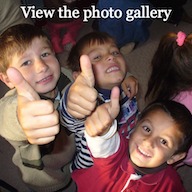
Pictured above is Hamilton Banda one of the key personnel involved with Ndirande Handicapped Centre (formerly Tidzelerana).
Knocks at our gate are quite common. It serves as our front door and people come calling regularly. I normally have some difficulty answering the gate because frequently the visitor does not speak much English and I speak little Chichewa. When a man I eventually came to know as Charles came knocking this wasn’t a problem. Charles knew neither English nor Chichewa because he was deaf.
Charles wanted a bit of piece work. I found this out via the gardener across the street. Apparently, Charles has done occasional work for our neighbour but since she had none on that particular day, he had turned to us. I gave him a pen and paper and he wrote out the note:
I am happy. I like you.
I look here because you are my friend.
I am sorry because my bicycle wheel broken.
Please give to me a new wheel.
I went to talk to some of the workers who were repairing a fence. They were insulted to think that someone not on their crew would get paid for work that they would do. It reminded me of the parable in Matthew 20. I then turned to our gardener who as it turns out knows some sign language! In the signed conversation that followed it was clear that Charles was going to get the worse jobs around. Sure enough, he raked and hauled away the street leading up to our gate. Hot work with thorny plants but it was better than nothing.
Malawian society is not particularly suited for those who have some kind of physical impairment. Paths and roads are very uneven so those with mobility or sight issues will struggle. There are a number of hand pedaled recumbents around town for those whose legs can’t carry them but they look very difficult. Occasionally you will see someone being lead around by a child, hand on shoulder, blind without their diminutive guide.
Ironically enough, while I was sorting out Charles, Vivian was at the Ndirande Handicapped Centre (formerly known as Tidzelerana). At some point Vivian will post about that experience but you can see a few pictures via Facebook. Ndirande Handicapped Centre has long been supported by The Presbyterian Church in Canada and is a way that the most disadvantaged in Malawian society can experience grace both practically and emotionally.
The picture that accompanies this post is of a maize shipment arriving at our house. Canada House serves as the storage place for Ndirande Handicapped Centre because they only rent their facilities (at the moment – they own a property with the dream of building someday soon). Someone from the community donated 100 bags of maize to distribute to the participants at Christmas time. Since Ndirande Handicapped Centre participants can’t farm, they often struggle to feed themselves. This maize is a significant help. Malawians eat nsima, a porridge made from maize, daily.
After Charles was done I gladly paid him for his efforts. I’m not sure whether he fixed his bicycle or bought a bag of maize with the kwacha I gave him. Whatever the case, he earned his money. Tidzelerana means “we care for each other.” Caring, being friends, here often involves mutual practical aid. If I have something and you need it then I should offer it to you as a friend. As Charles said, we are now friends.



I love this story. It reminded me of Andy who comes by the church here from time to time on his bicycle. He sometimes needs food and always politely asks if there is work he can do to earn it. He has raked leaves and picked up garbage from the yard, although sometimes there isn’t much for him to do. He always calls me “ma’am” and because he is from Newfoundland like my in laws, we enjoy sharing stories. It’s not a perfect friendship, but it’s friendship nonetheless.